The Heart of La Mancha
Thursday, August 24, 2017 @ 9:03 PM
My summer travels took me back to La Mancha again this year, to my wife’s beloved village. I have written a few articles on this region as it has always been a region of great importance when it comes to wine, cheese and other delicacies but it was also a very important religious enclave as well as a hunting playground for nobility. Torrenueva is a small village in the province of Ciudad Real La Mancha and located in the heart of the historical Campo de Montiel and has approximately 3000 inhabitants. This remote village has always been tied to the Order of Santiago which was founded in 1170 in Caceres by a group of Knights which formed a brotherhood 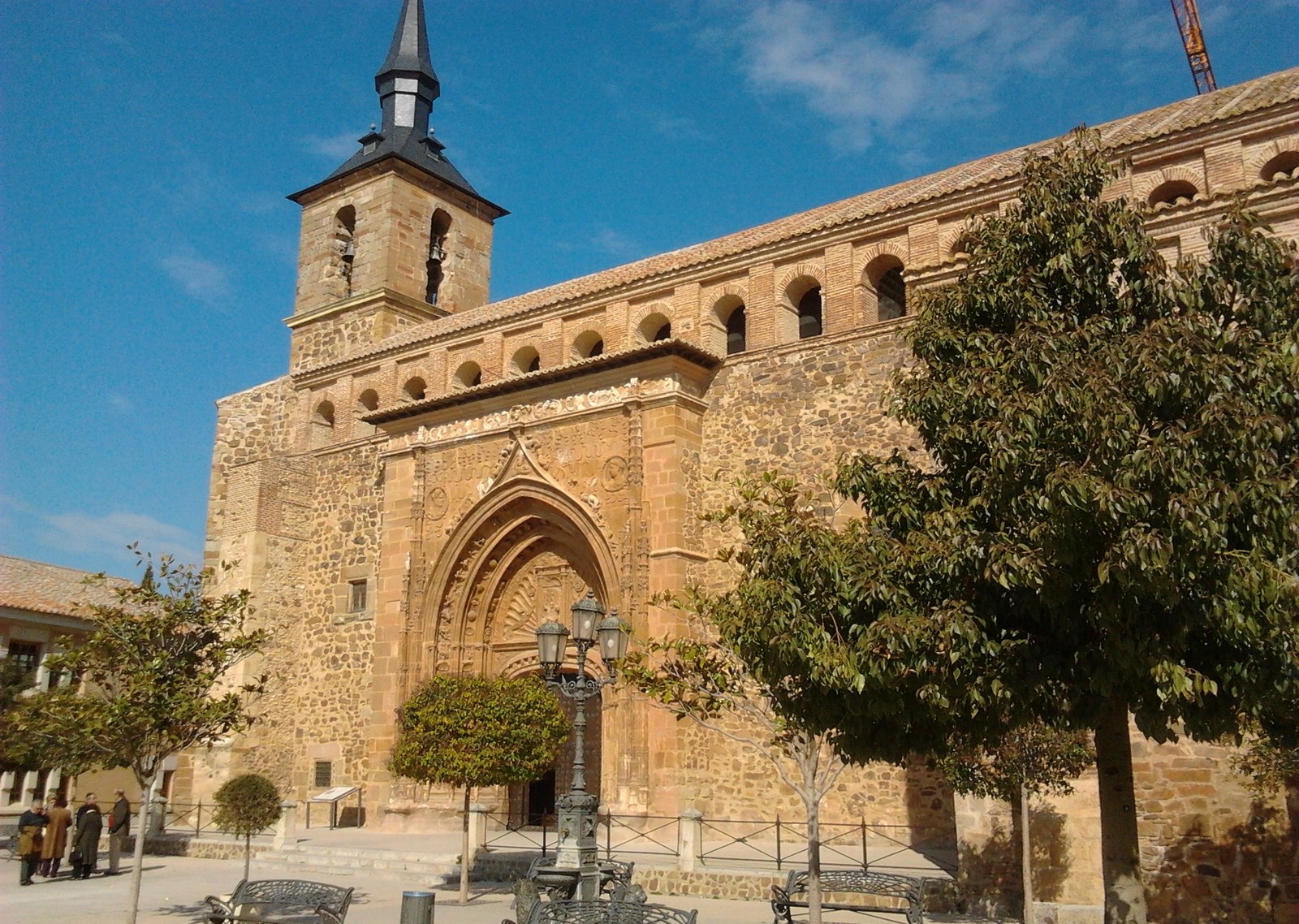 under the patronage of St James. The most important year for this village was 1440 when it received its “Carta Puebla”. The religious importance of this village is made evident in the main church that resides in the central plaza of the village, The Parish of St. James The Great, an architectural delight that you would not imagine could exist in such a small village with so few inhabitants. This wonderful church built between 1525 and 1535 is Plateresque in style: Elizabethan Renaissance with late gothic influences. The entire village moves around the its Patron Saint “La Virgin de la Cabeza” and the local “Fiestas” to celebrate their patron Saint were getting under way during our visit. However one might expect the Virgin to be safeguarded in the main church but this "Virgin" is rather special in the region and in fact existed even before the village of Torrenueva was founded, as far back as the 13th Century. Her original shrine was built to honour the Virgin that appeared to a local shepherd on numerous occasions but in the 16th Century the neighbours of Torrenueva decided to build a Sanctuary worthy of her importance 1 league from the village (1,5 Roman miles or 2,2 km nowadays), which still stands today and houses and safeguards their most important neighbour. Up until the 17th Century She was a very humble statue that only measured 85cm, it is believed that the image of the Virgin was mutilated in order to facilitate its hiding due to the imminent arrival of the Arab invaders as they feared her total destruction. But during the 17th Century we could say she
under the patronage of St James. The most important year for this village was 1440 when it received its “Carta Puebla”. The religious importance of this village is made evident in the main church that resides in the central plaza of the village, The Parish of St. James The Great, an architectural delight that you would not imagine could exist in such a small village with so few inhabitants. This wonderful church built between 1525 and 1535 is Plateresque in style: Elizabethan Renaissance with late gothic influences. The entire village moves around the its Patron Saint “La Virgin de la Cabeza” and the local “Fiestas” to celebrate their patron Saint were getting under way during our visit. However one might expect the Virgin to be safeguarded in the main church but this "Virgin" is rather special in the region and in fact existed even before the village of Torrenueva was founded, as far back as the 13th Century. Her original shrine was built to honour the Virgin that appeared to a local shepherd on numerous occasions but in the 16th Century the neighbours of Torrenueva decided to build a Sanctuary worthy of her importance 1 league from the village (1,5 Roman miles or 2,2 km nowadays), which still stands today and houses and safeguards their most important neighbour. Up until the 17th Century She was a very humble statue that only measured 85cm, it is believed that the image of the Virgin was mutilated in order to facilitate its hiding due to the imminent arrival of the Arab invaders as they feared her total destruction. But during the 17th Century we could say she 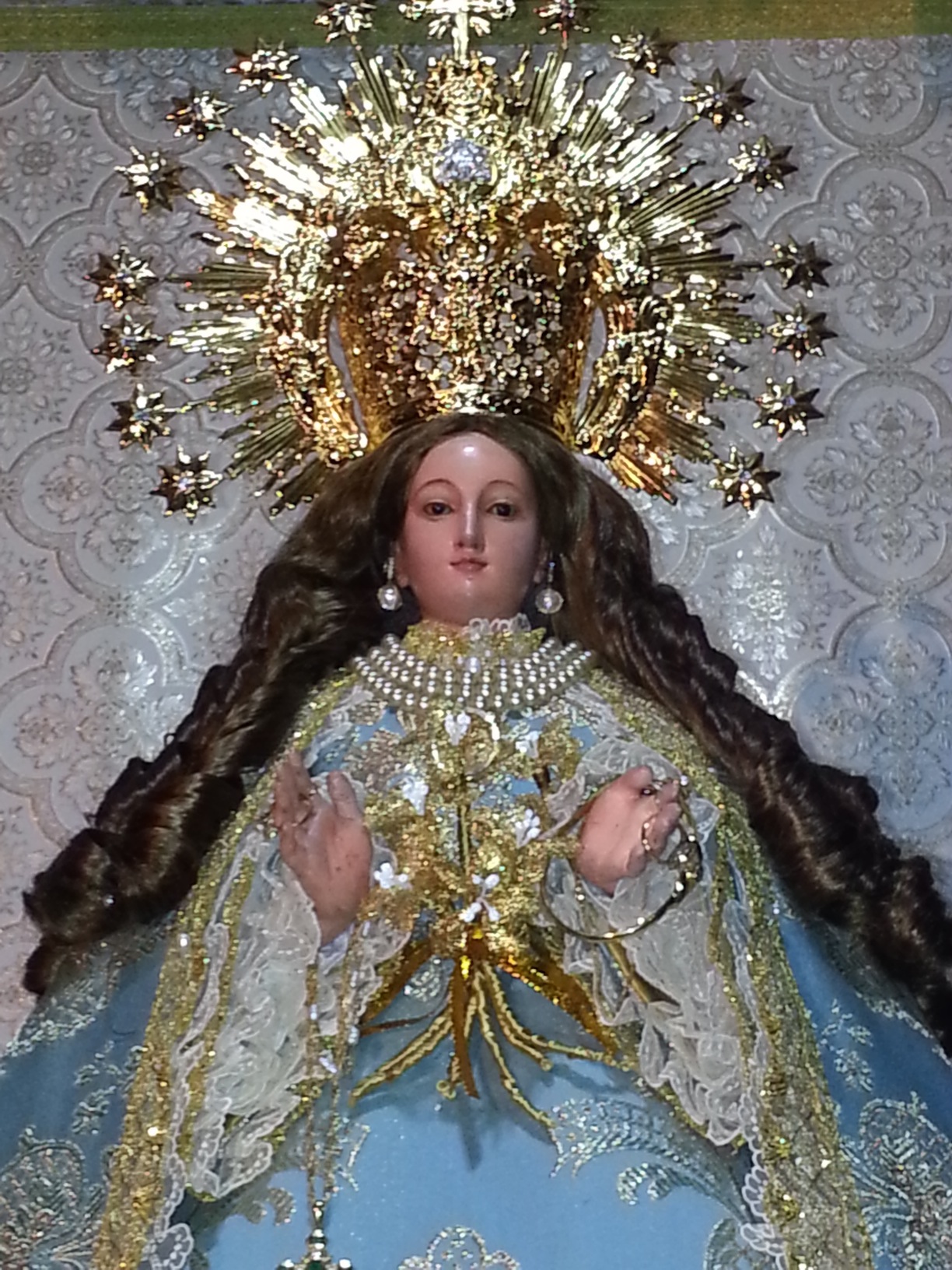 received a makeover to bring her inline with the opulence of the era and was dressed in rich fabrics lined with gold and adorned with intricate jewellery. Unfortunately the original statue was destroyed in 1936 due to the war but revealed a small stone statue of Our Lady hidden within its interior. After the war, the destroyed statue was replaced with a more modern style image, but despite all the vicissitudes, La Virgin de la Cabeza has continued to grow in importance and build faith throughout the region and is considered a “Miraculous Virgin” as many locals continuously tell stories of miracles occurring after making offerings in her Sanctuary. The Virgin de la Cabeza from Torrenueva lives in every household within the village and every househould around the country which has a connection with the village. We live in Valencia and we must have at least three or four images of the Virgin dotted around our house and one in the car! As you drive to the village from Valdepeñas you pass the Sanctuary and every time we drive past my wife salutes her with a few pomps of the horn. The first time I thought she was loosing the plot but I have to admit the Virgin of this village is a constant source of happiness and cheer for the locals, their adoration to this image is extremely deeply inbred and it wasn’t until a few years ago that she was stolen that I really understood how important she was to the village. The village changed over night: sadness, tears and worry filled the air, everyone was affected and the whole village went out to look for her. Fortunately she was found, abandoned in an olive grove by the side of the road, battered and bruised, so to speak, her material belongings had been stripped off and there she lay beneath an olive tree waiting to be found.
received a makeover to bring her inline with the opulence of the era and was dressed in rich fabrics lined with gold and adorned with intricate jewellery. Unfortunately the original statue was destroyed in 1936 due to the war but revealed a small stone statue of Our Lady hidden within its interior. After the war, the destroyed statue was replaced with a more modern style image, but despite all the vicissitudes, La Virgin de la Cabeza has continued to grow in importance and build faith throughout the region and is considered a “Miraculous Virgin” as many locals continuously tell stories of miracles occurring after making offerings in her Sanctuary. The Virgin de la Cabeza from Torrenueva lives in every household within the village and every househould around the country which has a connection with the village. We live in Valencia and we must have at least three or four images of the Virgin dotted around our house and one in the car! As you drive to the village from Valdepeñas you pass the Sanctuary and every time we drive past my wife salutes her with a few pomps of the horn. The first time I thought she was loosing the plot but I have to admit the Virgin of this village is a constant source of happiness and cheer for the locals, their adoration to this image is extremely deeply inbred and it wasn’t until a few years ago that she was stolen that I really understood how important she was to the village. The village changed over night: sadness, tears and worry filled the air, everyone was affected and the whole village went out to look for her. Fortunately she was found, abandoned in an olive grove by the side of the road, battered and bruised, so to speak, her material belongings had been stripped off and there she lay beneath an olive tree waiting to be found.
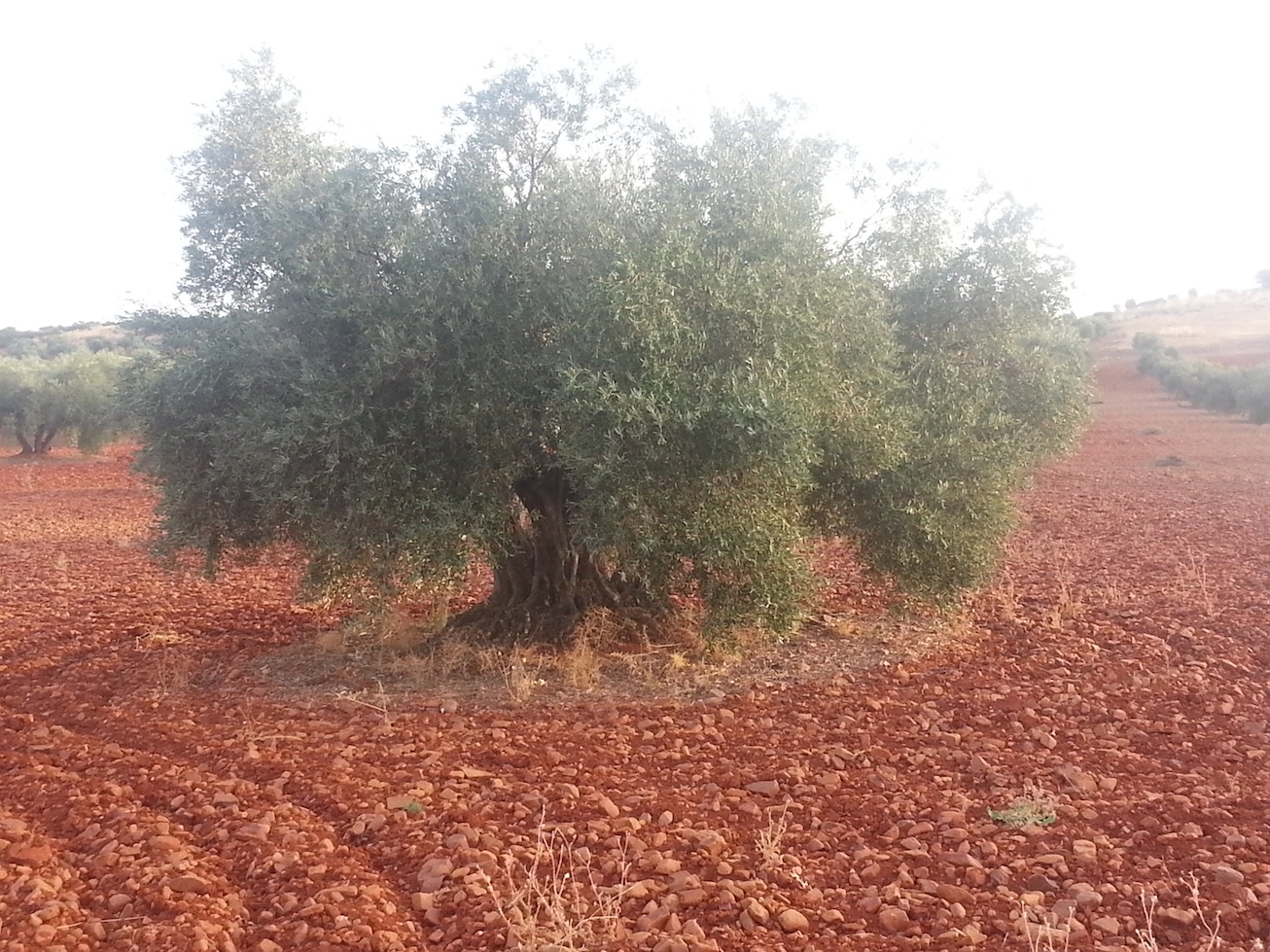
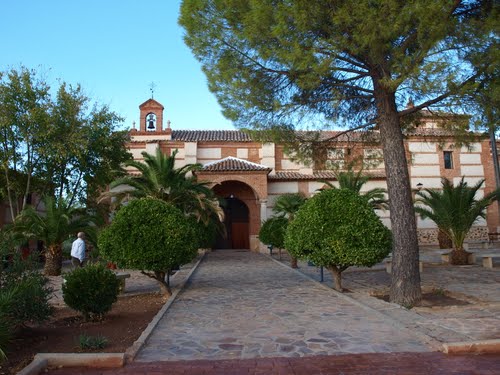
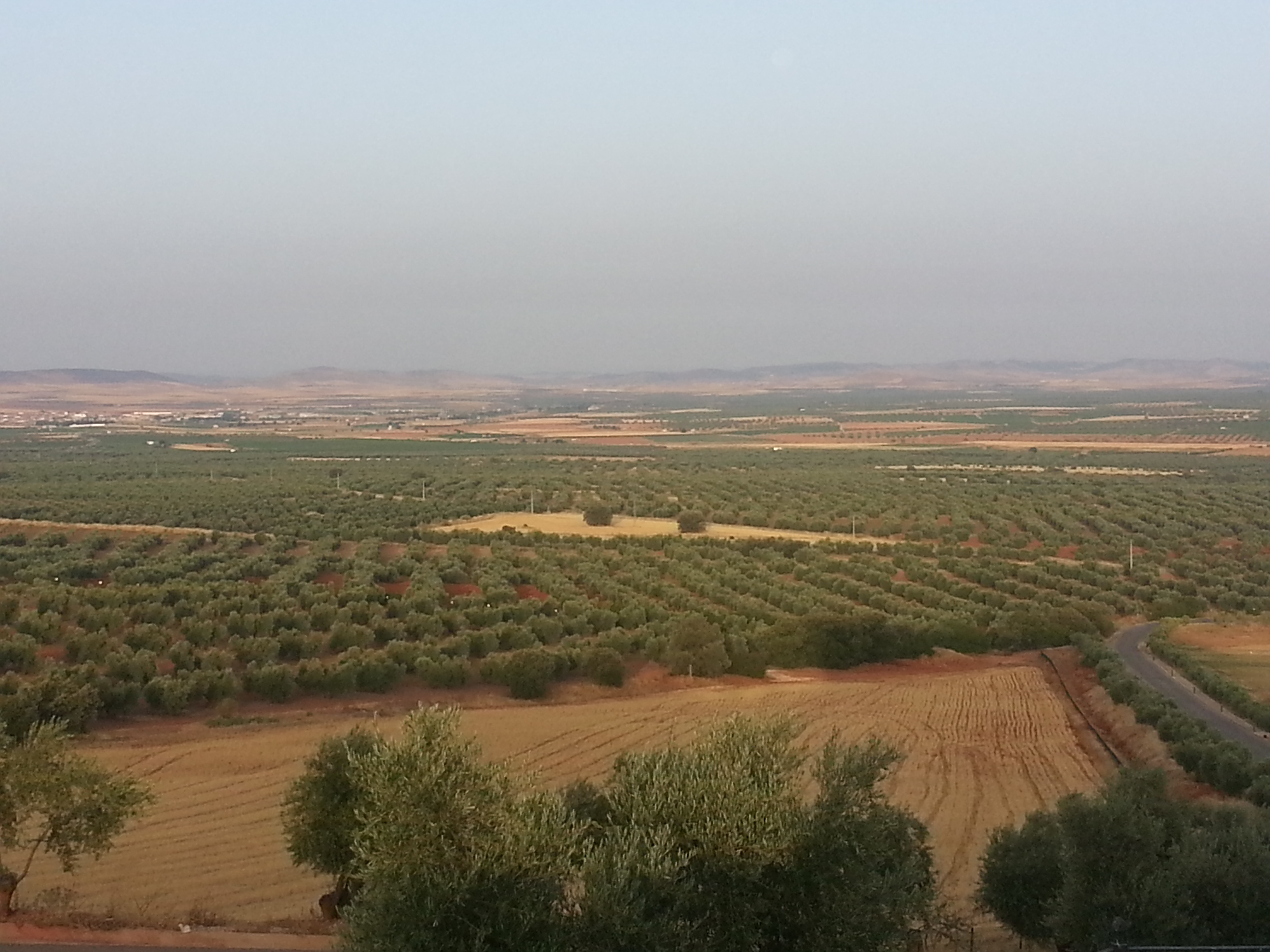
(Sanctuary of la Virgin de La Cabeza)
Even though she is a small statue in relation to others around the country no expenses are spared when it comes to dressing her and just her “every-day” cloak, not even the one for special occasions, cost the neighbours of Torrenueva €12,000 through donations to the parish. Her special gown costs almost double that and all her jewellery is real gold and silver incrusted with gems and pearls and from what I have been told here wardrobe is quite extensive and here jewellery box considerably large thanks to donations that have been given to her over the years by devotees. It took no time at all for the village to bring their patron back to her former glory and celebrations filled the streets of Torrenueva.
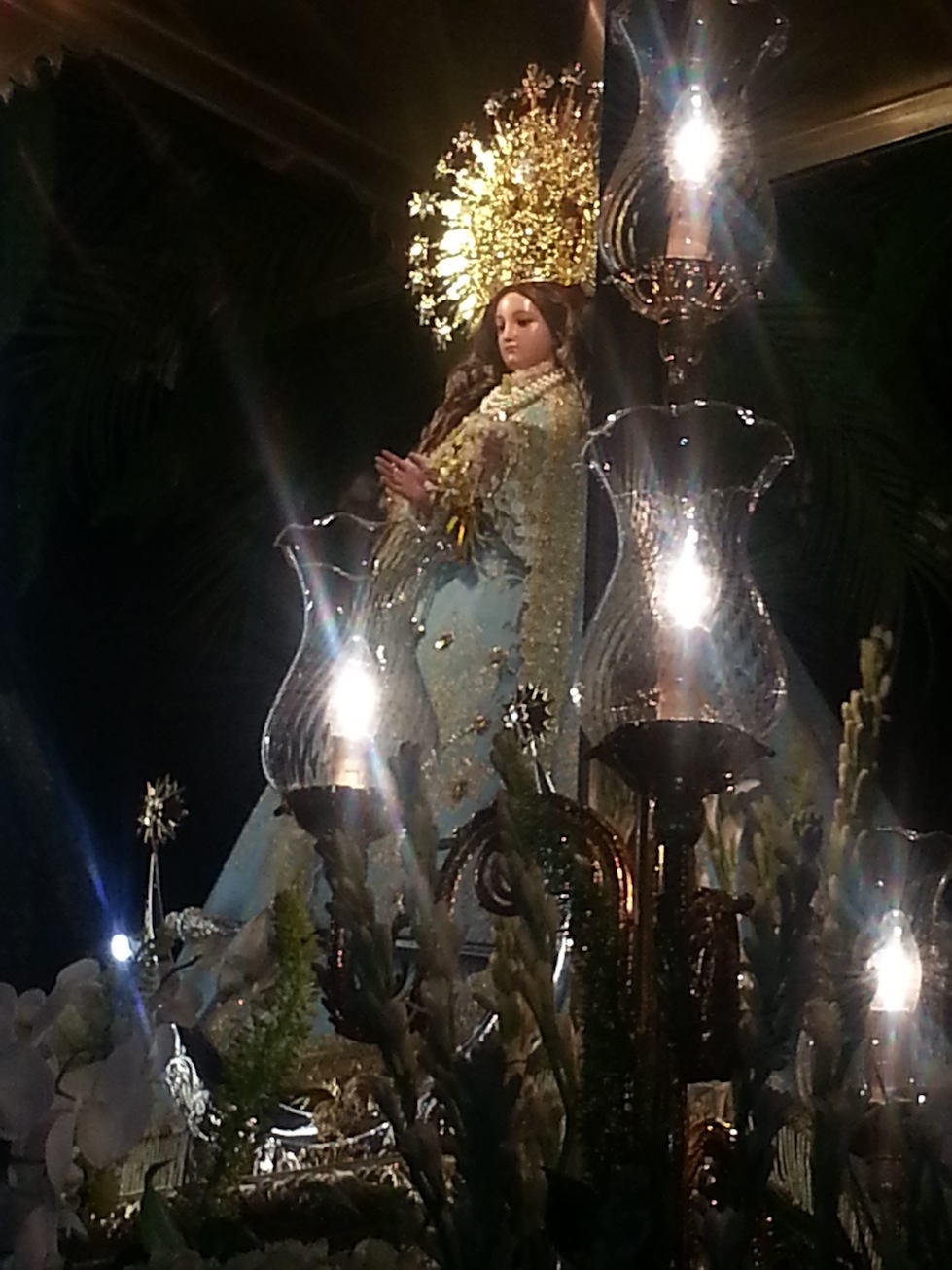
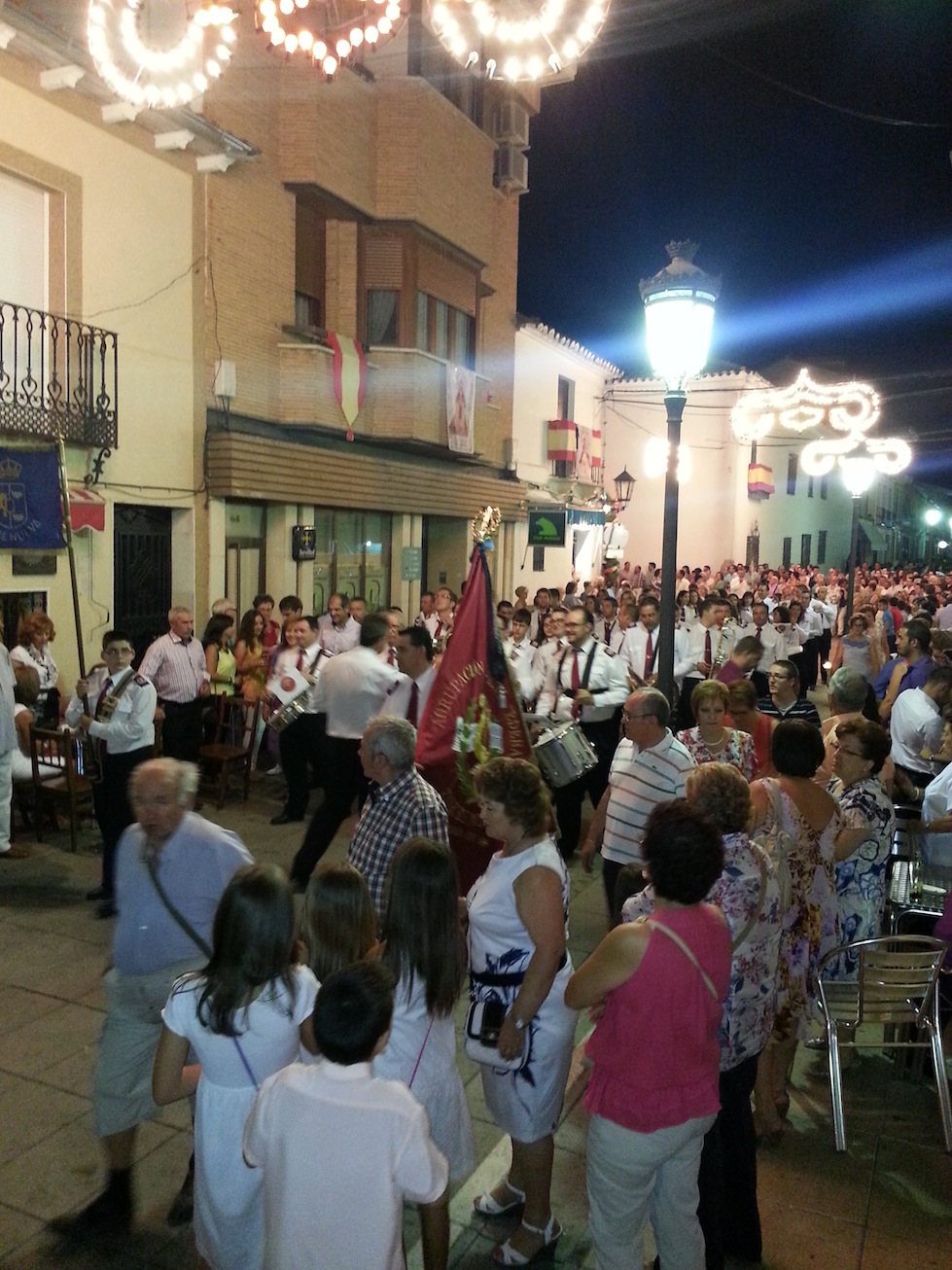
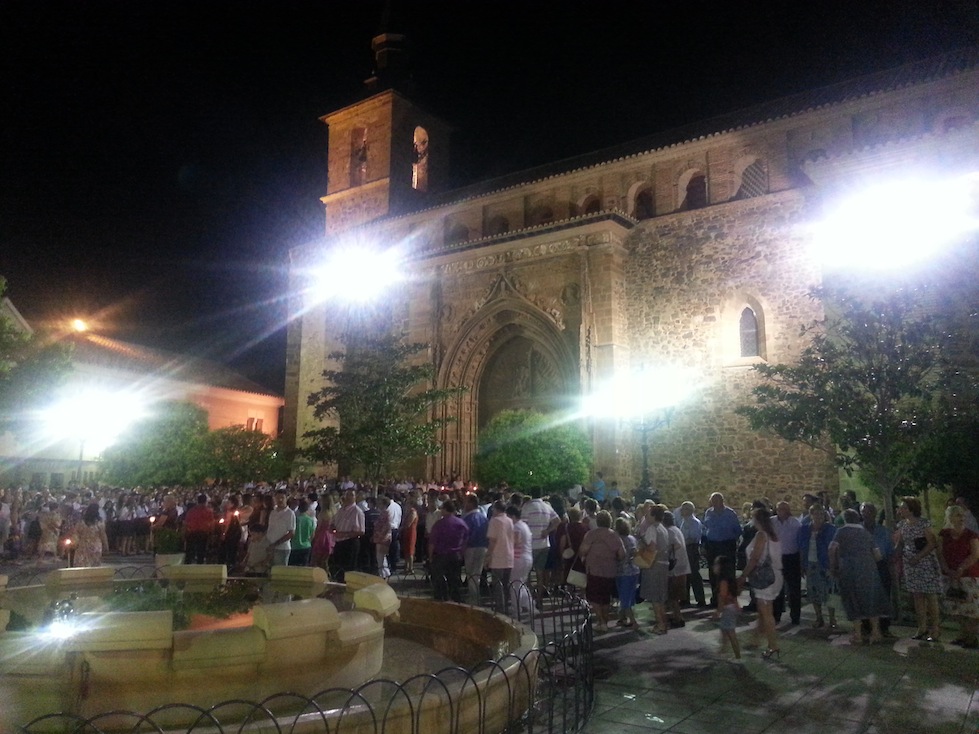
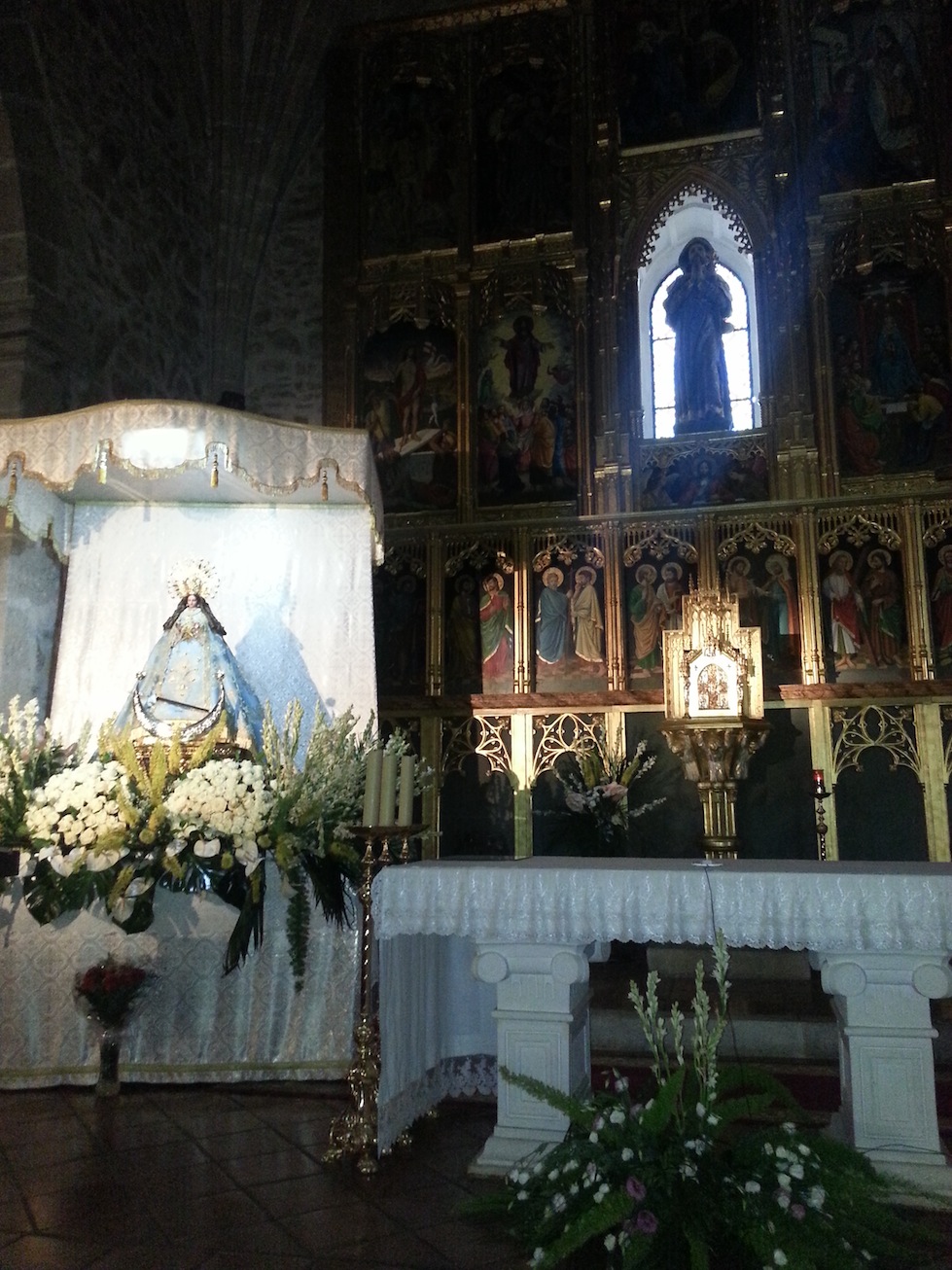
This summer we witnessed again the procession of the Virgin when they carry her down from her sanctuary to the church in the main square for the yearly celebrations. Although it is something that I have seen before I noticed something this year that I had never noticed before, how important the Virgin was for the children of the village. My daughter is now 12 and her group of friends were adamant on seeing the entire procession and crying at the fact that they couldn’t get the viewpoint they wanted in order to see her properly and follow the procession. They were so distraught that I had to do something about it and get them as close as possible. This was the highlight of the summer for them and three of them had even met up earlier that day and gone to church, on their own, leaving their parents at home! They came back after mass and had even confessed. I was gobsmacked, thinking what other twelve year olds would have done if they had been given the chance to have a bit of freedom out on the “town”. It makes you realise that it is a different world in country Spain, nothing like the Capital. Although everyone spots the “forastero” as you walk down the street, they all great you with a smile and an affectionate “Buenos dias”, no matter what.
Ver mapa más grande
You don't have to be registered to leave a comment but it's quicker and easier if you are (and you also can get notified by email when others comment on the post). Please Sign In or Register now.